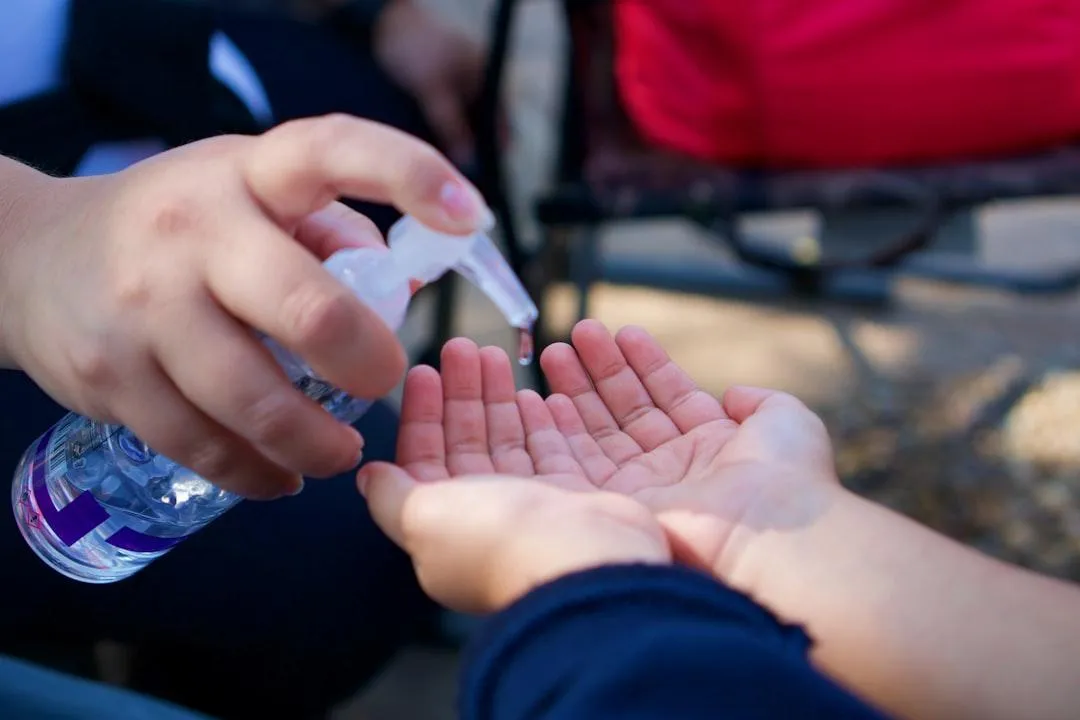
The Hidden Cost of Hand Sanitizer: How It Disrupts Your Microbiome & Immunity
Have you ever wondered if all those antibacterial soaps, sanitizing gels, and disinfectant wipes are actually doing more harm than good? For years, we’ve been told to scrub, spray, and sanitize constantly. However, research suggests that going overboard with sanitizers could be disrupting one of God’s most incredible designs: your microbiome. And when your microbiome is off balance, your immune system suffers.
What’s the Microbiome Got to Do with It?
Your microbiome is the community of bacteria, fungi, viruses and archaea living on your skin, in your gut, and throughout your body. Far from being harmful, most of these microbes are essential:
They help train your immune system
Regulate inflammation
Protect against pathogens
Support mood and metabolism
When you overuse sanitizers, especially products with harsh antibacterial chemicals like triclosan or repeated high-alcohol formulas, you can wipe out not just harmful germs but also these friendly microbial shields. Over time, your body’s delicate ecosystem falls out of balance.
How Over-Sanitizing Weakens Immunity?
Your immune system is meant to learn balance through daily exposure to microbes. Beneficial bacteria “educate” immune cells to tell the difference between friend and foe. Without this education, immunity can falter:
Overreacting: leading to allergies and autoimmune flares
Underreacting: leaving you vulnerable to infections
The hygiene hypothesis is the idea that a certain level of microbial exposure is actually crucial for building strong, balanced immunity. This is why children raised in ultra-sterile environments may develop higher rates of asthma, eczema, and inflammatory bowel conditions. God designed us to thrive with exposure to His creation—not in constant fear of it.
Signs Your Microbiome Might Be Out of Balance
How do you know if all that hand sanitizer is starting to take a toll? Some subtle signs include:
More frequent infections or longer recovery times
Digestive issues (bloating, constipation, or diarrhea)
Skin problems (eczema, rashes, or persistent dryness)
Seasonal allergies or new food sensitivities
Persistent fatigued without a clear reason
Of course, these symptoms can have many causes, but they’re common red flags that your microbial ecosystem could use some support.
Practical Steps to Protect Your Microbiome (Without Giving Up Hygiene!)
Choose Gentle Over Harsh: Use mild soap and warm water; avoid triclosan and heavy disinfectants unless needed.
Don’t Overdo the Hand Sanitizer: Reserve alcohol-based sanitizers for when soap and water aren’t available.
Feed Your Gut (And Your Immunity): Eat plenty of fiber from veggies, fruits, legumes, nuts, and seeds. Include fermented foods like yogurt, sauerkraut, or kimchi for natural probiotic support.
Get Outside: Time in nature, gardening, and even playing with pets expose you to diverse microbes that strengthen your immunity.
Consider Targeted Probiotics: With professional guidance, probiotics may help restore balance after heavy sanitizer or antibiotic use.
When to Work With a Practitioner
If you’re struggling with frequent infections, digestive discomfort, or unexplained fatigue, functional testing can reveal what’s really happening in your body:
Comprehensive stool testing to look at your gut bacteria balance, screen for harmful pathogens, and check markers of inflammation and digestion.
Secretory IgA tests to evaluate the health of your gut immune barrier.
Food sensitivity panels or zonulin screening reveal if leaky gut is suspected.
Micronutrient testing to see if your immune system is under strain from nutrient deficiencies.
This is where our GI Precision Program and Lab Review Service come in—to take the guesswork out and give you a clear, personalized plan whether that involves targeted probiotics, herbal antimicrobials, gut-healing protocols, or nutrition tweaks. It’s how we move beyond guessing and start restoring balance at the root.
Final Word
Sanitizers and disinfectants have their place—especially in hospitals or when preventing serious infection. But overuse at home can weaken the very system God designed to protect you. By supporting your microbiome health, you’re not just protecting immunity—you’re stewarding the body He entrusted to you.
True transformation starts with clarity. By looking deeper into your microbiome, you’ll uncover the root causes behind your symptoms and know exactly how to move forward. Our Lab Review and GI Precision Program are here to guide you when you’re ready. It’s time to start restoring your microbiome with clarity and confidence.
References
Bloomfield SF, Stanwell-Smith R, Crevel RW, Pickup J. Too clean, or not too clean: the hygiene hypothesis and home hygiene. Clin Exp Allergy. 2006 Apr;36(4):402-25. doi: 10.1111/j.1365-2222.2006.02463.x. PMID: 16630145; PMCID: PMC1448690.
Rivera-Amill V. The Human Microbiome and the Immune System: An Ever Evolving Understanding. J Clin Cell Immunol. 2014 Dec;5(6):e114. doi: 10.4172/2155-9899.1000e114. Epub 2014 Nov 5. PMID: 27088046; PMCID: PMC4831629.
Rocha LA, Ferreira de Almeida E Borges L, Gontijo Filho PP. Changes in hands microbiota associated with skin damage because of hand hygiene procedures on the health care workers. Am J Infect Control. 2009 Mar;37(2):155-9. doi: 10.1016/j.ajic.2008.04.251. PMID: 19249642.
Haahtela T, Holgate S, Pawankar R, Akdis CA, Benjaponpitak S, Caraballo L, Demain J, Portnoy J, von Hertzen L; WAO Special Committee on Climate Change and Biodiversity. The biodiversity hypothesis and allergic disease: world allergy organization position statement. World Allergy Organ J. 2013 Jan 31;6(1):3. doi: 10.1186/1939-4551-6-3. PMID: 23663440; PMCID: PMC3646540.
